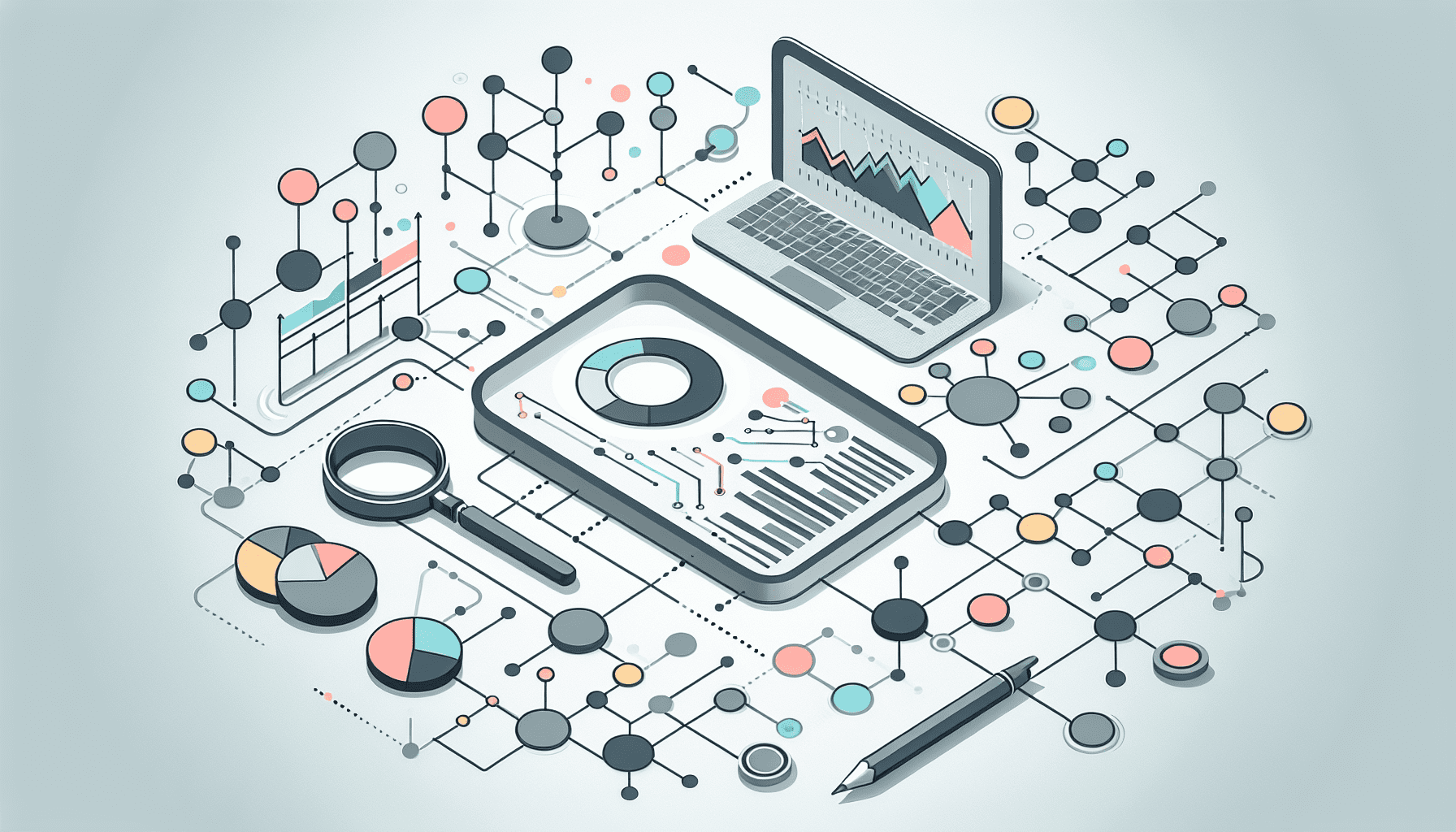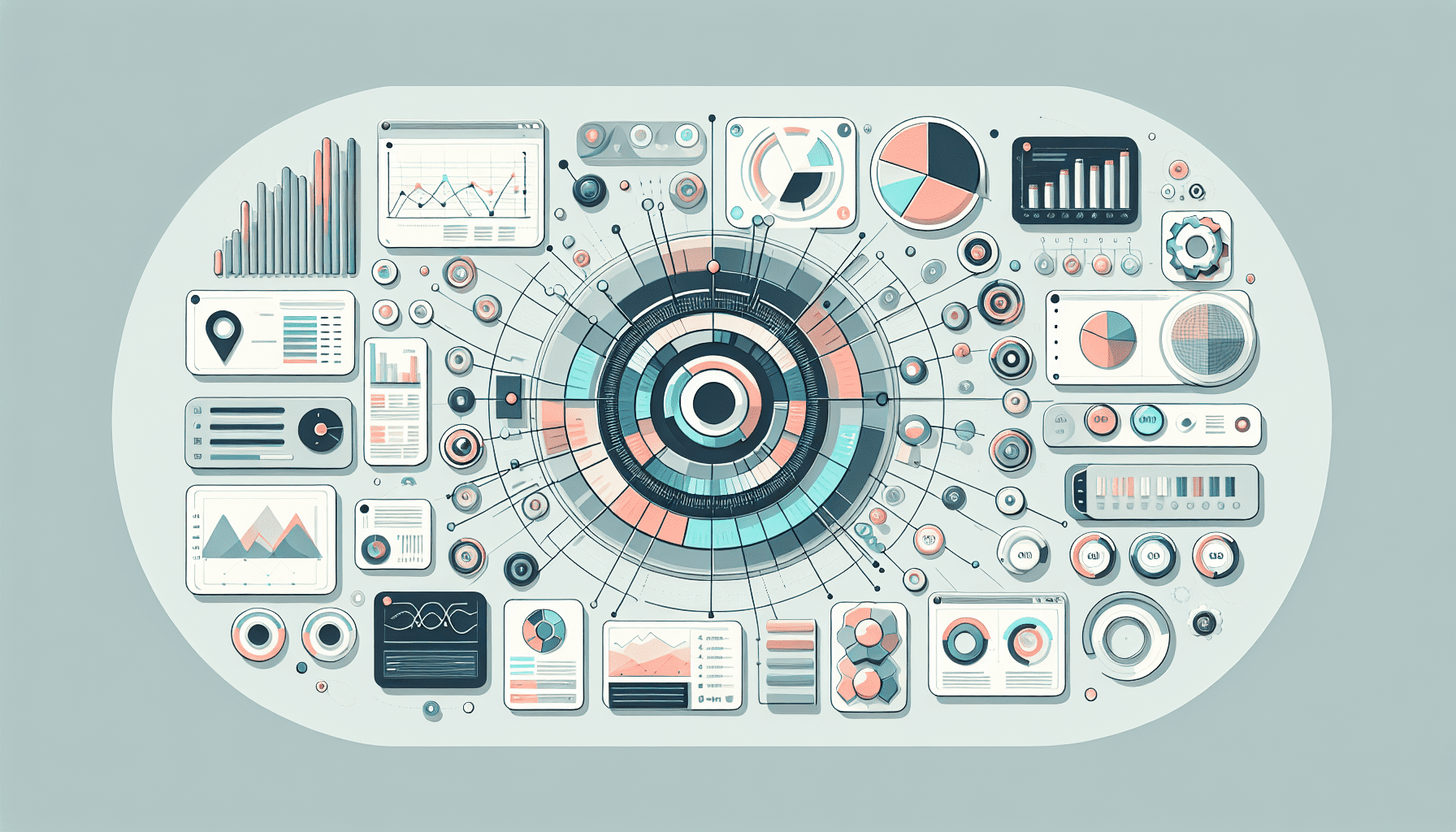Dashboard Software The Nucleus of Data Analysis

Dashboard Software Briefly Summarized
- Dashboard software is a graphical interface that displays key performance indicators (KPIs) and other relevant data to aid in decision-making.
- These tools are often web-based and provide real-time data visualizations, making them accessible from anywhere.
- They are essential for businesses to monitor, analyze, and report on various aspects of their operations.
- Popular dashboard software includes Google Analytics, Tableau, Power BI, and Sisense.
- The COVID-19 pandemic highlighted the importance of dashboards in tracking real-time public health data.
In the realm of data analysis, dashboard software stands as a pivotal tool for businesses and organizations to make sense of vast amounts of data. By offering a visual summary of performance metrics and analytics, dashboards enable decision-makers to grasp complex information quickly and act accordingly.
Introduction to Dashboard Software
The concept of a dashboard is derived from the automotive industry, where a driver uses the instrument panel to monitor the essential functions of a vehicle at a glance. Similarly, in the business context, dashboard software serves as the control panel for an organization, providing a visual overview of its most critical operations and performance metrics.
A dashboard's primary purpose is to present data in an easy-to-digest format, often through charts, graphs, and gauges. This allows users to monitor their organization's performance across various metrics and identify trends or issues in real-time. As a result, dashboards have become an indispensable tool for data-driven decision-making.
The Evolution of Dashboard Software
The rise of big data and the need for data-driven decision-making have propelled the evolution of dashboard software. From static reports to dynamic, interactive interfaces, dashboard software has transformed how organizations approach data analysis. The integration of real-time data feeds, predictive analytics, and machine learning algorithms has further enhanced the capabilities of modern dashboards.
Key Features of Dashboard Software
Dashboard software typically includes the following features:
- Real-time Data Updates: Dashboards connect to data sources and update in real time, ensuring that the information displayed is current.
- Customization: Users can customize dashboards to display the data and KPIs most relevant to their role or business objectives.
- Interactivity: Modern dashboards offer interactive elements, such as drill-downs and filters, allowing users to explore the data in more depth.
- Collaboration: Many dashboard tools include features for sharing and collaboration, enabling teams to work together on data analysis.
- Mobile Accessibility: With the prevalence of mobile devices, many dashboard solutions are designed to be accessible and fully functional on smartphones and tablets.
The Role of Dashboard Software in Data Analysis
Dashboard software plays a crucial role in the data analysis process. It serves as the interface between complex data sets and the end-user, translating raw data into actionable insights. By providing a centralized platform for data visualization, dashboards help organizations to:
- Monitor their performance against set goals and benchmarks.
- Identify trends and patterns that may indicate opportunities or threats.
- Make informed decisions based on up-to-date and relevant data.
- Communicate insights across the organization efficiently.
Choosing the Right Dashboard Software
When selecting dashboard software, organizations should consider the following factors:
- Data Connectivity: The ability to connect to various data sources, including databases, spreadsheets, and cloud services.
- Scalability: The software should be able to handle growing data volumes and user numbers without performance degradation.
- User-Friendliness: A user-friendly interface is essential for adoption across the organization.
- Customization and Flexibility: The tool should offer a high degree of customization to meet specific business needs.
- Security: Robust security features are critical to protect sensitive data.
Conclusion

Dashboard software is an essential component of modern business intelligence and data analysis strategies. By providing a clear and concise view of an organization's key metrics, dashboards empower businesses to make informed decisions quickly and effectively. As data continues to grow in volume and importance, the role of dashboard software will only become more vital.
FAQs on Dashboard Software
What is dashboard software? Dashboard software is a tool that provides a visual representation of key performance indicators and other relevant data to help businesses monitor and analyze their operations.
Why is dashboard software important? Dashboard software is crucial for data-driven decision-making, allowing businesses to quickly understand complex data and act on it.
Can dashboard software be customized? Yes, most dashboard software allows for extensive customization to fit the specific needs and goals of a business.
Is dashboard software difficult to use? While some dashboard tools may have a learning curve, many are designed with user-friendliness in mind, offering intuitive interfaces and drag-and-drop functionalities.
How do I choose the right dashboard software? Consider factors such as data connectivity, scalability, user-friendliness, customization options, and security when selecting dashboard software for your organization.
Sources
- Dashboard (business)
- 8 best dashboard software and tools to use in 2024 - ThoughtSpot
- 10 Best Dashboard Software (Reviews, Features, & Pricing) - ClickUp
- 10 Free Tools for Dashboards, Data Visualisation and Infographics
- Best Dashboard Software 2024 - Capterra
- Top 7 Dashboard Software of 2024 - Motion
- 10 Best Dashboard Software Solutions - Datamation
- Dashboard Software for Growing Businesses - Databox
- 77 Open Source, Free and Top Dashboard Software - PAT Research
- Complete Guide to Dashboard Software 2023 | TechnologyAdvice
- Geckoboard | Real-time KPI dashboards that improve team ...